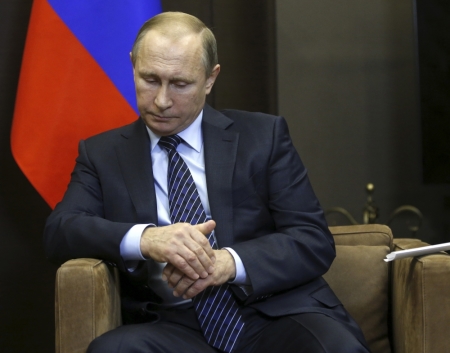Atheist Faces 1 Year in Jail for Doubting Existence of God, Bible in Russia

A Russian man has been charged with a year in prison for denying God's existence on social media, his lawyer says.
Attorney Pavel Chikov said in a recent Facebook post that his client, Viktor Krasnov, has been arrested and charged with one year in prison based on an internet exchange from 2014, in which he denied the existence of God and wrote that the "Bible is a collection of Jewish fairy tales."
According to The Global Post, Krasnov was reported to the authorities after one social media user flagged his atheist comments as "offending the sentiments of Orthodox believers."
Krasnov argues there needs to be protections for atheists in Russia.
"I don't know how you can treat social networking posts seriously," Krasnov told anti-government site Grani.ru. "Looks like we need a law to protect atheists' feelings too."
Media outlets report that Russia has been stricter on anti-religious sentiment after the band Pussy Riot was arrested in 2012 in Moscow's Cathedral of Christ the Savior for a political performance.
Members of the feminist activist band were arrested and two of the top leaders served 21 months in jail before being released in 2013.
Although the Pussy Riot trial gained sympathy from Western activist groups, Russian leaders condemned the religious insensitivity of the band members.
President Vladimir Putin indicated in 2012 that he believed the activists were punished accordingly, saying during a press conference: "We have red lines beyond which starts the destruction of the moral foundations of our society."
"If people cross this line they should be made responsible in line with the law."
"It was right that they were arrested, and the court's decision was right," Putin added in a 2012 interview with NTV. "One must not erode our moral foundation and undermine the country. What would be left then?"
As The Christian Post previously reported, Russia was one of the top three countries in the world to clamp down on religion in 2012, according to a study from the Pew Research Center.
The study found that Russia, along with China and Tajikistan, were the three top places where vandalism of religious sites, including churches and mosques, had taken place.
Pew Research Center based its results on data that recorded the "demolition of houses of worship, and the seizure of religious groups' property and government raids of houses of worship that result in property damage."
The report added that the Americas were the least likely place to witness destruction of religious sites and symbols.
"Though such actions were most common in the Middle East-North Africa region (in seven of 20 countries in that region), property was damaged by governments in every region of the world. Destruction of religious property was least prevalent in the Americas, where only two countries, Venezuela and Cuba, of 35, saw destruction of religious property," the report stated.





















